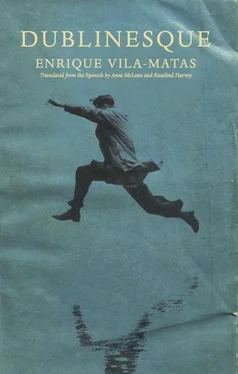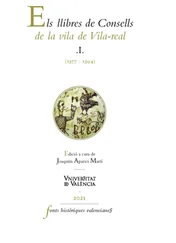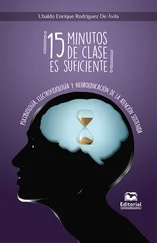He sees Spider look at the camera, then close his suitcase, and walk for a while through cold and deserted streets. He sees him act as if he’d come into his living room. He moves around in it as if it were a rundown neighborhood in London. Spider has come from a mental hospital and is headed for a place that is theoretically less harsh, just a little less harsh, to a hospice or a halfway house, coincidentally situated in the same neighborhood of London where he spent his early years; this will be the direct cause of his starting fatally to reconstruct his childhood.
When Riba sees that Spider is reconstructing his childhood with deceptive faithfulness to the facts, he wonders if it might not also be the case that his own tangled mental life never strays far from his childhood neighborhood. Because he himself is now thinking of his early years too, and the blessed innocence he had back then. He sees a straw hat in the sun, a pair of tan shoes, a pair of turned-up trousers. He sees his Latin teacher, who was an Englishman. And then he doesn’t see him. Oh, as everyone knows, there are people who, just as they appear, disappear very shortly afterward. The Latin teacher was a consumptive man who had a spittoon next to his blackboard. These are snippets from his childhood in El Eixample, the neighborhood near the center of Barcelona. In those days, he often felt stupid, Riba remembers. He does now, too, but for different reasons: now he feels stupid because it seems he only possesses moral intelligence; that is, an intelligence that isn’t scientific, or political, or financial, or practical, or philosophical. . He could have a more rounded intelligence. He always believed he was intelligent and now he sees he’s not.
“Mad people are very strange,” says Celia. “But they’re interesting, aren’t they?”
It seems once again as if his wife is trying to see how he reacts to the figure of Spider, perhaps to measure his own degree of dementia and stupidity. Perhaps she’s even reading his mind. Or who knows, perhaps she just wants to know if he identifies in a highly emotional way with this very isolated, engrossed individual, lost in an inhospitable world. The film is a walk around the East End, taken by a disturbed man. We see life just as this madman registers and captures it. We see life just as it is filtered through the wretched mind of this young man with his strange suitcase and his notebook with microscopic handwriting. It is a life that the poor lunatic sees as dreadful and criminal, terribly limited, and horrifyingly sad and gray.
“And have you seen what he’s writing in his notebook?” asks Celia, as if she suspects he’s so wrapped up in his thoughts that he’s not even watching the film.
It occurs to Riba suddenly that he’s missing something. A notebook, for example. Like Spider’s. Although he soon realizes he actually already has a notebook; it’s the Word document where he occasionally writes down random sentences he likes.
If it were up to him, he’d now start adding the music of Bob Dylan to the images from Spider . Dylan singing, for example, “Most Likely You Go Your Way (And I’ll Go Mine),” a song he’s always found encouraging.
“No, I can’t see what he’s writing in his notebook. Why would I need to?” he finally answers Celia.
She pauses the film so he can see what Spider is writing in his damn notebook. They are primitive signs, bent sticks or little matchsticks, so incomplete they’re not even really sticks or matchsticks, and of course, could never form part of any hieroglyphic alphabet. They are genuinely frightening. However you look at them, the only thing those little sticks spell out are the clinical symptoms of the absurdity of madness.
Although only vaguely, Spider reminds him of the character from A Man Asleep , by Georges Perec, one of his favorite books on his list. Why is he so drawn to the figure of Spider, this poor, destitute, feeble-minded man who walks around confused and puzzled by a life he doesn’t comprehend? Maybe because there is something in Spider, and also in part in Perec’s character, which is common to everyone. This means he sometimes identifies with Spider, and at other times with “the man asleep,” who in turn reminds him of Red Desert , Antonioni’s film from 1964, where Monica Vitti plays a stray character, a female version of Spider avant la lettre , a woman lost in an inscrutable industrial landscape in which the apparent calm does nothing to help her establish adequate communication with things surrounding her. This constant failure, this emotional collapse, means she is doomed to become a fearful creature who, incapable of confronting a reality that completely escapes her comprehension, moves through empty spaces, through a metaphysical desert.
From what he has seen so far, the moody atmosphere in Spider seems to be establishing subtle links — in particular through the cinematography of Peter Suschitzky, which reflects a depressed state of mind — to the style he has always admired in Red Desert . Here too, as in the Italian film, one sees proof of how the futility of any attempt rationally to construct the outside world necessarily implies the inability to create an identity for oneself. And once he has arrived at this point, Riba again wonders if he himself might not be Spider. Just like the man in the film, he sometimes has dealings with ghosts.
When, in the most memorable sequence, Spider tries to find out who he is, we see him weave a tangle of string in his bedroom, like a mental spider’s web that appears to reproduce the horrific workings of his brain. But it soon becomes clear that these awkward attempts to reconstruct his own personality are ineffective. He walks through the inhospitable streets of London’s East End, down the cold, distant pathways of his irretrievable childhood: he has lost every connection to the world, he doesn’t know who he is; perhaps he never knew.
Now Riba thinks he can hear strange voices in the darkness, and wonders if it might not be the spirit of childhood that, one day, just seemed to disappear forever. Or maybe the ghost of the brilliant writer who, as a publisher, he always wished he could discover? A profound unease has hung over him for his whole life due to these absences. Nevertheless, the muffled sound of a certain presence is much worse, the murmur of the writer’s malady , for example, a ceaseless buzzing, a real pest.
It is natural for publishers to suffer from this strange buzzing. Some hear it more than others, but not one escapes from it completely. There are extreme cases, although Riba was never one of those. They are the publishers with the most acute writer’s malady , who would prefer to publish books written by nobody, since that way they would avoid the buzzing and keep the glory of what they had published for themselves alone.
In the same way that death shelters the malady of death inside itself, that is, its own malady, there are publishers whose most intimate tormentor, the writer’s malady , gnaws away at them, a background noise, whose sound recalls the crunching of dry leaves.
One day in Antwerp, Riba spoke of this crunching sound to Hugo Claus. He spoke of how he was doomed to live with the writer’s malady, and mentioned that his head was forever pierced with sorrow, due to that persistent, intimate monster and its goddamned buzzing, reminding him constantly that apparently nothing in life could exist without it, without the malady , without that background noise, without that savage, relentless crunching; always reminding him that the malady , the murmur of dry leaves, was a vital cog in the diabolical mechanism of his mental clockwork.
Hugo Claus, so famous for The Sorrow of Belgium , silently sympathized with him and then remarked simply:
Читать дальше












